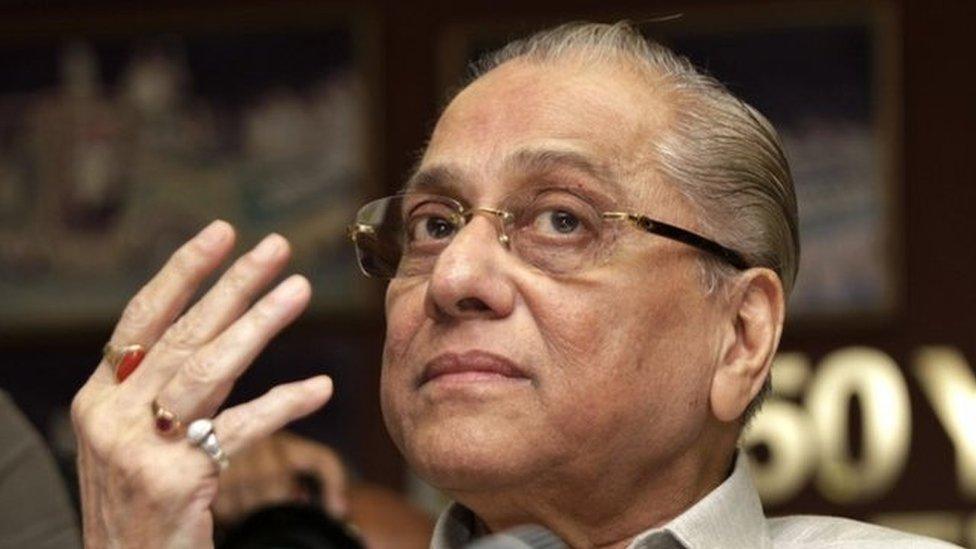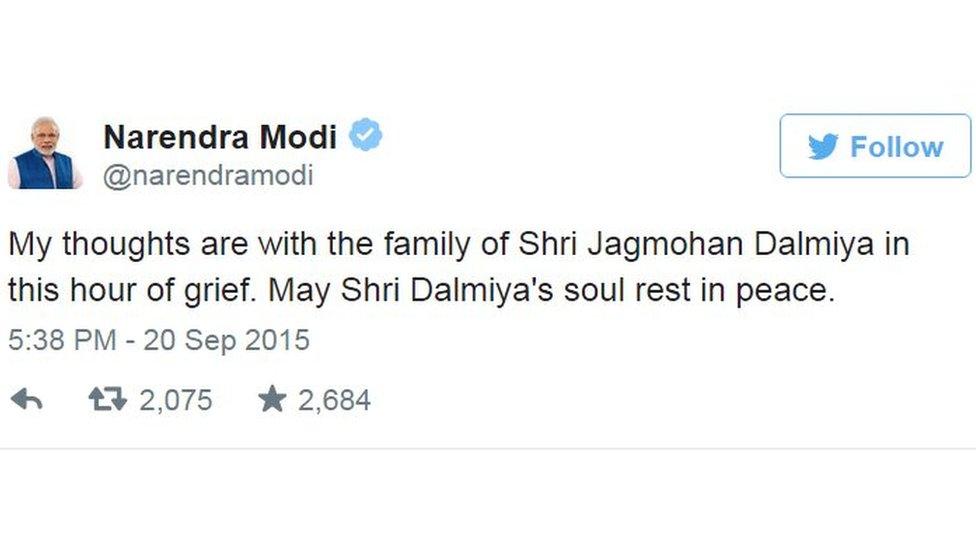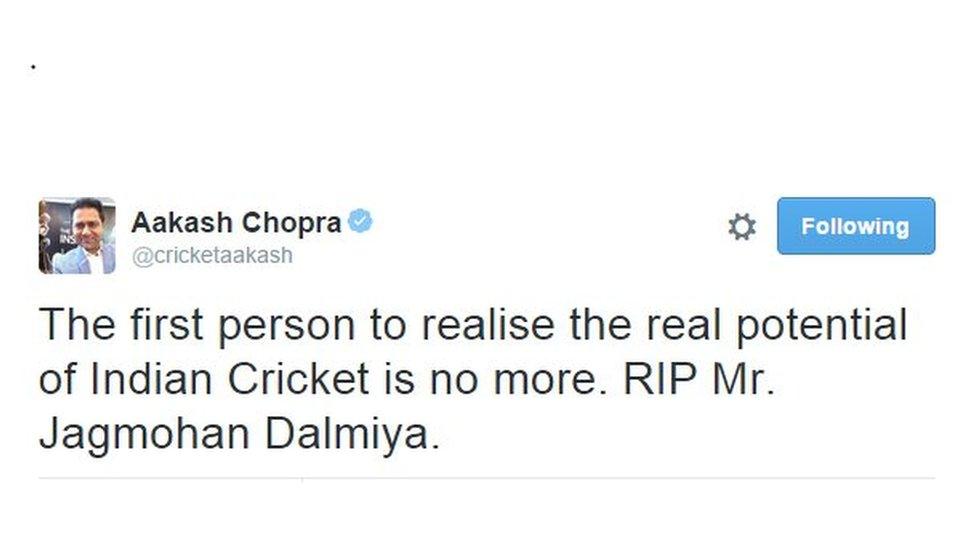India’s Jagmohan Dalmiya: Tributes pour in for cricket chief
- Published

Jagmohan Dalmiya was credited with bringing the World Cup to the subcontinent
Tributes have been paid to the president of the Board of Control for Cricket in India, Jagmohan Dalmiya, who has died in the city of Kolkata.
Dalmiya, 75, was admitted to hospital on Thursday with chest pains. He died on Sunday evening.
He served as president of the BCCI from 2001 to 2004 and returned to it full-time in March 2015.
Dalmiya was also president of the world governing body, the International Cricket Council, from 1997 to 2000.
A leading cricket administrator in his native Bengal for many decades, Dalmiya joined the BCCI in 1979 and was one of the men credited with bringing the World Cup tournament to the subcontinent for the first time in 1983, four years after India won the trophy for the first time.
Prime Minister Narendra Modi led the tributes

Former Test cricketer Aakash Chopra said Dalmiya understood the potential of Indian cricket.

The man who transformed cricke, externalt, was the headline in The Times of India.
"When he took charge in 1997, the International Cricket Council (ICC) only had $24,868 (£16,000) in its coffers and when Dalmiya's term ended in 2000, the ICC had over $15m in its kitty," the newspaper said.
It added that Dalmiya "will always be remembered for bringing in the big bucks in Indian cricket".
Hindustan Times described him as the "man who made India the epicentre of world cricket", external.
"Taking over as secretary of the BCCI in the early 1990s, he saw the zooming brand value of Indian cricket and pushed hard to turn the country into a global commercial hub," the newspaper said.
"He knew money was the only way to force traditional cricket powers like England and Australia to acknowledge India, and by extension the sub-continent which staunchly backed him."
The newspaper said Dalmiya "played an important role in South Africa's return from an international boycott due to its apartheid policies".
The Economic Times called him "the man who made cricket Indian".
ESPNcricinfo website said Dalmiya was a "torchbearer of Indian cricket", external and is widely "credited with being one of two BCCI officials responsible for India's emergence as world cricket's financial powerhouse".